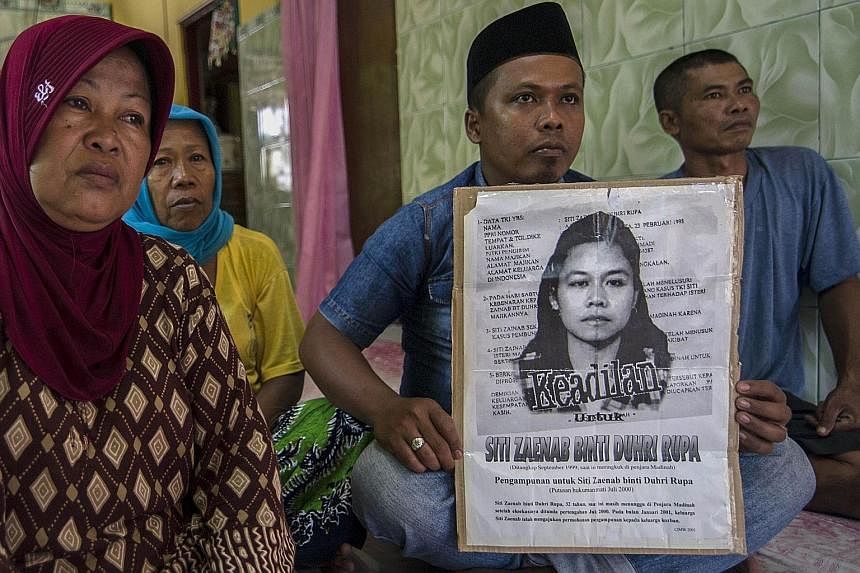HONG KONG - Indonesia's proposed ban on sending domestic workers to the Middle East will force women seeking an escape from poverty to migrate illegally, and put them at greater risk of human trafficking, a rights campaigner has said.
President Joko Widodo announced last month that Indonesia would stop sending new domestic workers to 21 Middle Eastern countries after Saudi Arabia executed two Indonesian maids, including Siti Zainab who was beheaded this year for murder, local media reported.
Ms Eni Lestari, chairman of the International Migrants' Alliance comprising more than 120 member organisations, said Indonesians would continue to seek work overseas unless the government did more to tackle poverty.
"This moratorium makes women more vulnerable because they will migrate anyway," Ms Lestari told the Thomson Reuters Foundation yesterday.
"It's not about protecting migrant workers - on the contrary, it increases the risk that they are trafficked because they will be illegal migrants and have no protection at home and in their destination countries," she said.
Ms Lestari was speaking on the sidelines of Trust Forum Asia, a conference co-hosted by the Thomson Reuters Foundation that aims to tackle modern-day slavery.
There are 53 million domestic workers worldwide, more than 80 per cent of them women, according to the International Labour Organisation (ILO). Domestic workers are among the most exploited people in the world, with the ILO estimating that private households save US$8 billion (S$10.8 billion) a year by not paying or under-paying domestic workers.
An estimated 600,000 Indonesians work in the Middle East, mostly as domestic workers.
Indonesia's proposed ban, which is expected to come into effect later this year, affects Saudi Arabia - a major destination for Indonesian domestic workers - the United Arab Emirates, Qatar, Bahrain and Egypt among other countries.
Despite Indonesia's success in more than halving the poverty rate since 1999, some 28 million Indonesians in a country of 252 million still live below the poverty line.
The government's practice of issuing licenses to private agencies to organise "the export of migrant workers" had resulted in widespread exploitation and abuse, said Ms Lestari.
Previous bans in Indonesia and other countries, such as Malaysia, have not reduced domestic worker abuse, according to evidence collected by advocacy groups.
If governments want to make a real difference, Ms Lestari said, they should legislate to guarantee employment contracts of migrant workers to avoid them being exploited by recruitment agencies and employers.
REUTERS

